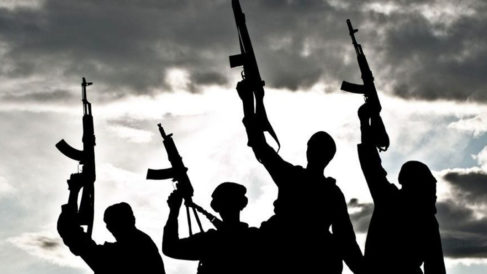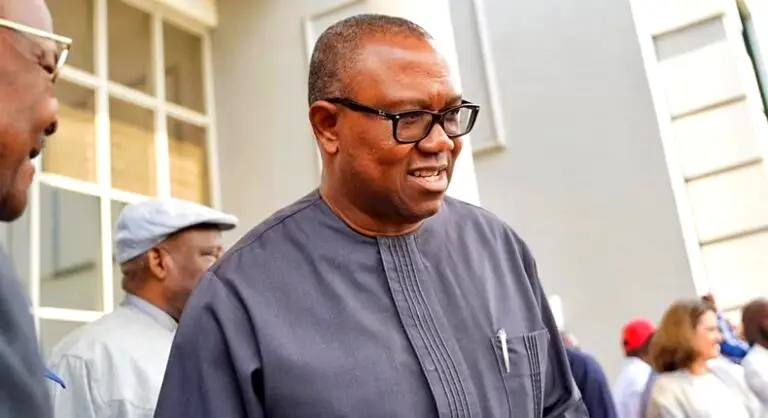
.By Muhammed Dahiru Lawal
AREWA AGENDA – Ravaged by Boko Haram Insurgency for over a decade and a rising case of banditary, kidnappings and wanton attacks across its geographic spread, Nigeria’s North risks the possibility of being a ‘red zone’.
With the raging COVID-19 pandemic, many had thought attacks will temporarily cease, but it turns out not to be the case.
Recent Attacks
Lately, no fewer than 38 persons were killed by gunmen in Fadan Karshi and Nandu villages all of Sanga Local Government Area of Kaduna State in an attack reported to have occurred simoultanously.
“21 people were killed in Fadan Kashi while 17 killed in Nandu,” Sanga Local Council Chairman, Emmanuel Adamu told newsmen.
Similarly, in March, about fourteen persons were killed in an attack on Itsi community in Iburu village of Kufana District in Kajuru Local Government Area of the State.
The attack occurred a few hours after suspected gunmen attacked a different community called Bakira located inside Maro Village around midnight.
In the same month, bandits killed 51 villagers as well as destroyed houses and foodstuffs in Karewa ward of Igabi Local Government Area.
Recently, bandits in two separate attacks on the same Karewa ward and Zoron Giwa in Sabon Birni Ward of the State, killed three person including two housewives,
While on a condolence visit where 51 villagers were killed, the state Governor, Malam Nasir El-rufai apologised for his administration’s inability to protect the people.
“I also came to apologise for failure to protect you fully, we are doing our best to minimise such incidents, you should continue to forgive us”, El-rufa’i said.
Speaking further, he stated that, “…we are doing the best we can and we are hoping that this banditry will be addressed because security personnel are on ground to manage the situation.
“In Kaduna we have vast land, if the security closes one area, they attack another,” he lamented.
The governor told the villagers that he had asked the security agencies to wipe out the bandits while emphasising that his administration will not negotiate with them.
Similarly in Plateau State, no fewer than 10 persons were killed in Bassa town of Bassa local government area of the State midnight Wednesday by unknown gunmen.
Tuesday night, the same local government was attacked in which three persons were killed and many others injured.
These attacks came barely two weeks after two soldiers attached to Operation Safe Haven (OPSH) and two other persons were killed in Katummai village of same Bassa local council.
President of the Irigwe Development Association (IDA) of Bassa council, Sunday Abdu, bemoaned the spate of attacks in the area, saying they are helpless in the face of the incessant attacks and killings in this difficult time of coronavirus pandemic.
“That is what is happening; attacks and more attacks. They killed three persons on Tuesday night and killed seven persons again on Wednesday night,” he lamented.
Angered by the incident, the Senator representing Plateau North Constituency, Senator Istifanus Gyang, said he was saddened over the attacks.
In a statement by his Special Adviser, Media and Protocol, Musa Ibrahim Ashoms, Gyang, who is the Deputy Chairman, Senate Committee on Defence, said it is sad and disturbing that while all nations, Nigeria inclusive, are battling to overcome the plague of coronavirus, killer bandits are still attacking helpless communities of Plateau North Senatorial District.
Attack on the Plateau came on the heels of confirmation by the Sokoto State Police Command that it has recovered 22 bodies of persons allegedly killed by bandits in Sabon-Birni Local Government Area of Sokoto state.
Sources close to the village had earlier informed that armed bandits invaded Gangara village Wednesday evening on motorbikes shooting sporadically.
The sources noted that over twenty persons lost their lives in the attack and several others escaped with gun injuries while properties were destroyed.
The Chairman, Senate Committee on National Security and Intelligence, Senator Ibrahim Abdullahi Gobir ( APC-Sokoto), on Friday condemned the bandits’ attack on Sokoto community just as he noted the need to accord a top priority to training, retraining and motivation of security operatives.
Presidential Directives
Following the killings in Sokoto and Plateau states by gunmen, President Muhammadu Buhari, at the weekend, had ordered the Nigerian Army to assist the police to flush out the bandits from the forests of the two states.
But this is not the first time the President will be giving a direct charge on insecurity in the country, yet the situation persists.
In January, a statement by Mallam Garba Shehu, Senior Special Assistant, Media and Publicity to Muhammadu Buhari said the President had authorized the deployment of air power to support troops and policemen sent to the “difficult terrain” to counter the menace of the attackers operating in the forest area bordering Kaduna, Niger and Zamfara states.
The statement added that in line with this directive, the Nigerian Air Force is setting up refueling facilities at Minna, Niger State to support the aircraft operations.
In February, at least 30 people were killed in attacks on farmers by bandits in Damkal and Tsanwa villages in Batsari Local Government Area of the President’s home state – Katsina.
Through a Federal government delegation led by his chief of staff, Abba Kyari, President Buhari assured the Katsina state government that his administration will do whatever it takes to ‘rid Nigeria of criminal elements’.
Katsina is one of the North-west states that have suffered attacks by bandits in recent years.
Governor Aminu Bello Masari granted amnesty to the gunmen last year and paid them some sort of compensation, a move that sparked condemnation from some sections of the society at the time.
Hundreds of people have been killed and many others kidnapped in such attacks in Katsina, Sokoto, Kaduna and Jigawa states.
Boko Haram
As a retired soldier, one of the mantra that successfully rode President Buhari to power in 2015, was on the promise to quell Nigeria’s security challenges especially the Boko Haram insurgency in the North East.
Having secured a second tenure in 2019, the insecurity situation in the North in general is still a far cry from being tackled.
In a July 2017 BBC’s Hard Talk Interview with Nigeria’s Chief of Army Staff, Lt. Gen. Tukur Yusuf Buratai, host Stephen Sackur posited that it ‘would be fair’ to say that the Nigerian Army has failed in its mission to defeat Boko Haram as mandated by the President but Mr. Buratai insisted that it had succeeded in ‘technically defeating’ the insurgents.
The Boko Haram crisis is in its 11th year running and still the Nigerian government and others in the Lake Chad region continue to suffer attacks by the group on members of the security forces and on civilians.
Days ago, Chadian Army dealt a major blow on Boko Haram terrorists in its ongoing Operation Boma’s Wrath, led by the country’s President, Idriss Deby.
Deby had ordered the operation following an attack on a military base in a Boma on March 23 that killed 98 Chadian soldiers.
“It was a shame to see the Nigerian troops at the mercy of Chadian Soldiers”, Said a Nigerian Twitter user who joined the Idris Derby trend on the micro blogging platform.
“When we are ready to deal with the various interests stalling the anti insurgency war, that day we will defeat Boko Haram in this country”, concluded the user.
Handicapped Governors
With the recent rise in insecurity across the North, state governors are overwhelmed with the fight against the crisis; a role in which they are constitutionally dressed in the garb of “Chief Security Officer’s” of their States, yet lack the powers to control federal security forces or run their own state security.
“This lacuna has tacitly absolved state Governors from being held completely responsible for security breach in their State”, said Mubarak Ibrahim, a political science student.
For some, granting the governor power to run full state security without adequate checks means more impunity and abuse of power. However, we are in a fix, “desperate times requires desperate measures” Says Jamilu Makama a resident of Kanduna state.
Religious Leaders Should Rise
A driver who constantly plies Kaduna-Abuja route told Arewa Agenda that he believes religious clerics are not doing much to help either.
“You see them very active, turning their loudspeakers against each other in the cities, but they never penetrate remote locations to preach to this people. For instance, some of these bandits have spent their entire lives in the bush without any form of exposure to civilization.
They don’t know the Islamic ruling for killing a soul for example, they hardly hear about God and so they are hardened. So if scholars will preach to them, it will go a long way”, he opined.
Heading for Doom
“This is not the best of times for us in the North considering the kind of security crisis we are going through from every angle”, says Yunusa Abba a resident of Maiduguri.
“The North use to be very glorious and peaceful but at the rate we are now, I am afraid we may be heading for doom”, he added.
So far, if socio-economic development must thrive in the North, authorities must beef up security to forestall attacks, track down bandits and bring them to Justice through adequate intelligence gathering, neutralise vested interest and ensure security are adequately deployed across every Local Government Area of the North.
Source: Economic Confidential







